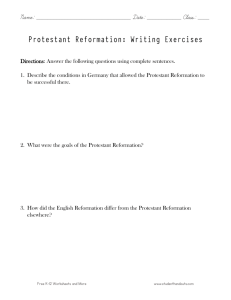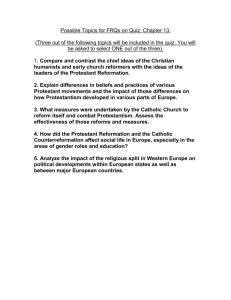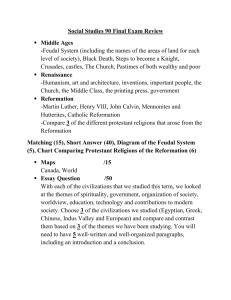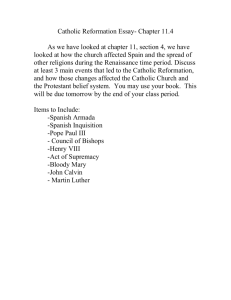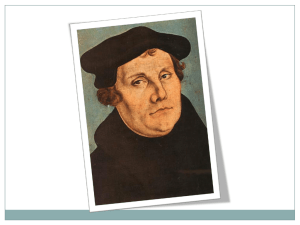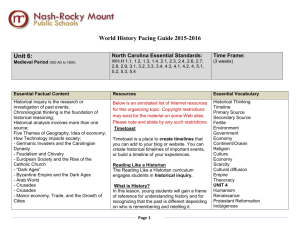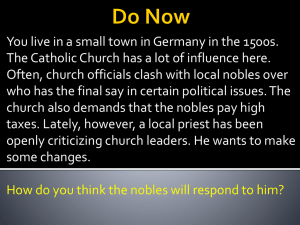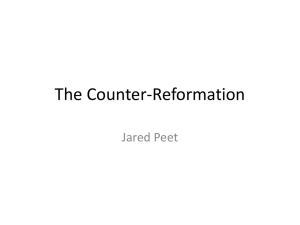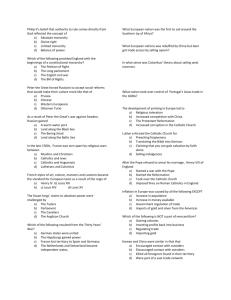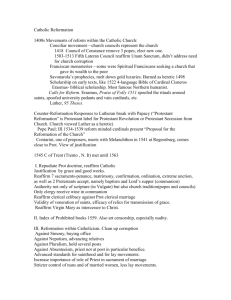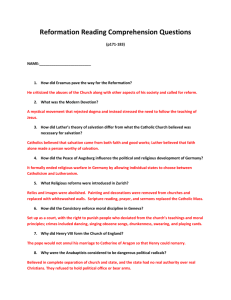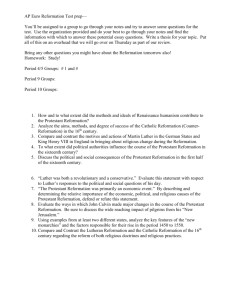Protestant Reformation Worksheet: Key Concepts & Figures
advertisement
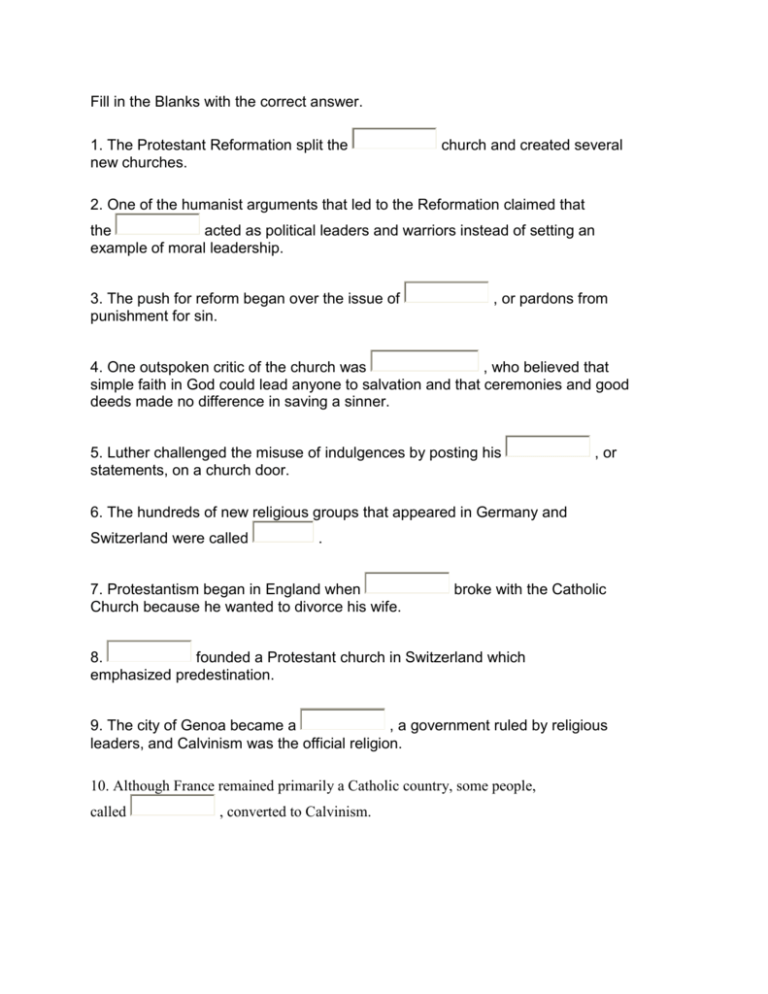
Fill in the Blanks with the correct answer. 1. The Protestant Reformation split the new churches. church and created several 2. One of the humanist arguments that led to the Reformation claimed that the acted as political leaders and warriors instead of setting an example of moral leadership. 3. The push for reform began over the issue of punishment for sin. , or pardons from 4. One outspoken critic of the church was , who believed that simple faith in God could lead anyone to salvation and that ceremonies and good deeds made no difference in saving a sinner. 5. Luther challenged the misuse of indulgences by posting his statements, on a church door. , or 6. The hundreds of new religious groups that appeared in Germany and Switzerland were called . 7. Protestantism began in England when Church because he wanted to divorce his wife. broke with the Catholic 8. founded a Protestant church in Switzerland which emphasized predestination. 9. The city of Genoa became a , a government ruled by religious leaders, and Calvinism was the official religion. 10. Although France remained primarily a Catholic country, some people, called , converted to Calvinism. Answer following True/False Questions. If the answer is FALSE, write the correct response, ie; tell me why it is false! 1. The Council of Clermont met on three different occasions between 1545 and 1563 to define the offical church position on matters of doctrine. True False 2. The most striking result of the Reformation and Counter-Reformation was the appearance of many different churches in Europe. True False 3. The Catholic Church countered the Protestant Reformation by making its own reforms. True False 4. New religious orders, such as the Jesuits, were formed to strengthen support for the Catholic Church. True False 5. One negative result of the Reformation and Counter-Reformation was the decrease in the number of universities, and the general lack of support for education during this tumultuous time. True False 6. The Counter-Reformation, also known as the Church Reformation, was an attempt to return the church to an emphasis on spiritual matters. True False 7. Pope Paul III founded the Jesuit order and believed that salvation could be achieved by doing good deeds. True False 8. The Reformation led to a decrease in the power of the pope and to an increase in the power of national governments. True False 9. The Counter-Reformation used the Inquisition and its harsh punishments to keep Catholics within the church. True False 10. Pope Paul IV tried to combat heresy by burning the printing presses in shops that printed the books he had listed in his Index of Forbidden Books. True False 1. Although most Europeans were Christians, they believed in ________ and thought that many of the events that took place around them were done by these creatures. a. fairies b. spirits 2. Wise people, people who were thought to have a special understanding of how the world worked, were part of a traditional belief in ________. a. sages b. witchcraft 3. During the period from the 1500s to the 1700s, many Europeans were tried as ________, and their punishment was usually death. a. heretics b. witches 4. People throughout the ages have played games for fun; in fact, the earliest form of the modern game ________ may date from about 3000 B.C. a. backgammon b. chess 5. One traditional village ceremony, called ________, poked fun at village life and often used humor and role-reversals to reveal the discontent of villagers. a. abbeys of misrule b. topsy-turvey 6. People of this time identified closely with those of their own kind and often formed ________, or organizations of people in the same professions. a. unions b. guilds 7. ________, or single printed sheets, were used to inform villagers of royal decrees, sensational news, or other events. a. broadsheets b. tear sheets 8. ________ appealed to country folk, and contained predictions about the weather and prospects for growing crops. a. almanacs b. epics 9. German ________ developed the printing press around 1450, which allowed ideas and knowledge to spread farther and faster than ever before. a. Thomas More b. Johannes Gutenberg 10. As residents of cities and towns became more sophisticated, they needed magic and "wise" folk less and less, a development that scholars call the ________ of the world. a. reenchantment b. disenchantment
